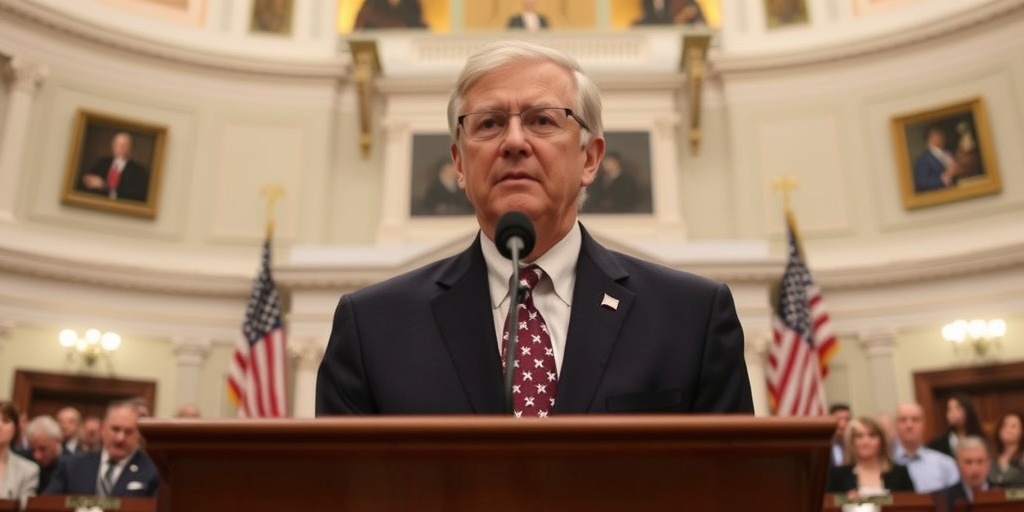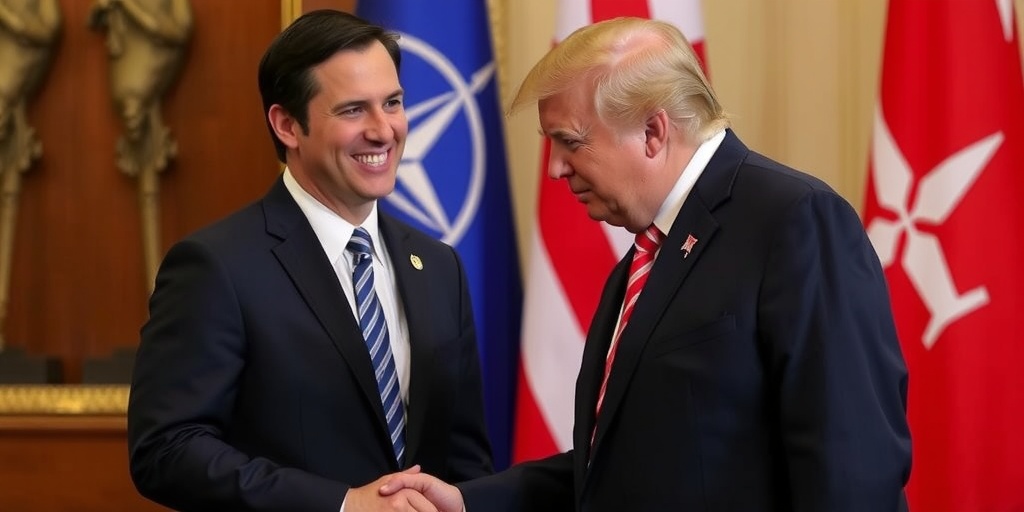Now Reading: Opposition Grows in House Against G.O.P. Budget Plan
-
01
Opposition Grows in House Against G.O.P. Budget Plan
Opposition Grows in House Against G.O.P. Budget Plan

House Republican Budget Blueprint Faces Opposition from Conservatives
A vital budget blueprint designed to unlock President Donald Trump’s proposed spending and tax cuts is on the brink of failure in the House of Representatives, as staunch conservative members voice strong opposition over concerns it would significantly increase the national debt. This crucial budget resolution recently passed through the Senate during a late-night session over the weekend, but the situation in the House remains precarious as Republican leaders strive to push the measure forward.
House Republicans are urging for a vote as early as Wednesday to move beyond the next legislative hurdle. The passage of this budget resolution is essential for the Republican Party to begin crafting laws that implement President Trump’s domestic policy agenda, an effort they seek to expedite despite unified opposition from Democrats. However, conservative hard-liners within the House are adamant that they will not support the resolution, casting doubt on whether even appeals from President Trump will be enough to sway their votes.
Scheduled to meet with a group of House Republicans at the White House later on Tuesday, President Trump has often enjoyed significant deference from GOP lawmakers in recent months. Many have previously yielded to his directives during critical votes. Yet this time, some representatives have indicated they are steadfast in their opposition. Representative Andy Harris of Maryland, who chairs the Freedom Caucus, stated, “No matter what the president tells anybody, the votes just aren’t there.” He noted that at least a dozen Republican lawmakers are likely to reject the resolution.
Harris revealed he had received an invitation to the White House meeting with Trump but had opted to decline. “Let the president spend time with people whose minds he might change,” he said, expressing his own reluctance to be swayed. The dissenting conservatives express their dissatisfaction with the proposed spending cuts outlined in the resolution, which demand Senate committees to find approximately $4 billion in cuts over a decade. This figure falls dramatically short compared to the $2 trillion in spending reductions that the House has previously approved.
House Republican leaders insist that this $4 billion target is merely a minimum figure, designed to provide them the necessary maneuverability to adhere to strict procedural rules governing the budget legislation in the Senate. The GOP has chosen to utilize a process known as reconciliation, aiming to fast-track the tax cuts and budget legislation through Congress while protecting it from a filibuster in the Senate. However, both the House and Senate must ultimately agree upon the same budget blueprint before they can proceed with this reconciliation process.
Some House Republicans are apprehensive that a compromise with the Senate will lead to them accepting a much lower level of spending cuts than they initially demanded. Additionally, there is frustration directed at the Senate’s current stance, which regards the extension of tax cuts enacted under the Trump administration in 2017 as cost-neutral, under the assumption that it merely maintains the existing fiscal environment. Senate Republicans have adopted this strategy to enable the continued existence of these tax cuts indefinitely, providing them with more flexibility to draft legislation that would appease more budget-conscious party members.
Representative Eric Burlison of Missouri articulated the concerns of many, stating, “No serious individual would suggest that this is going to possibly reduce the deficits. This is going to only accelerate our deficit,” referring specifically to the proposed budget resolution.
The predicament creates a familiar challenge for Speaker Mike Johnson, who is once again tasked with securing votes for budget-related legislation that contradicts the fiscal priorities of hard-liner conservatives within his party. Johnson emphasized that it is crucial for House Republicans to endorse the legislation, stating that doing so would allow them to begin developing a bill containing the vital tax cuts and spending reductions. Without simultaneous adoption of the same budget resolution by both chambers, the reconciliation process cannot commence.
Should the House fail to adopt the Senate-passed budget resolution, Republicans would need to return to the negotiating table, crafting an entirely new compromise bill and restarting the legislative process. In addressing his fellow lawmakers, Speaker Johnson remarked, “This amendment just allows us to get off the sidelines, to get on the field and start this game. We’ve got to get this done.” He further stressed the urgency of the situation, declaring, “We have no luxury of complacency, and we really don’t have time to dither on this thing.”
Stay Informed With the Latest & Most Important News
Previous Post
Next Post
-
 01New technology breakthrough has everyone talking right now
01New technology breakthrough has everyone talking right now -
 02Unbelievable life hack everyone needs to try today
02Unbelievable life hack everyone needs to try today -
 03Fascinating discovery found buried deep beneath the ocean
03Fascinating discovery found buried deep beneath the ocean -
 04Man invents genius device that solves everyday problems
04Man invents genius device that solves everyday problems -
 05Shocking discovery that changes what we know forever
05Shocking discovery that changes what we know forever -
 06Internet goes wild over celebrity’s unexpected fashion choice
06Internet goes wild over celebrity’s unexpected fashion choice -
 07Rare animal sighting stuns scientists and wildlife lovers
07Rare animal sighting stuns scientists and wildlife lovers




















